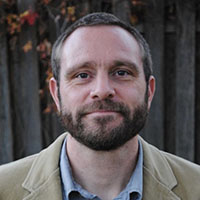Migration as a vector of economic losses from disaster-affected areas in the United States
11:00am -12:00pm
Friday, December 2nd, 2022
Social Science Centre 5220
A lecture by Jack DeWaard

This talk infuses consideration of human migration into research on economic losses from extreme weather disasters. Taking a comparative case study approach and using data from the Federal Reserve Bank of New York/Equifax Consumer Credit Panel, we document the size of economic losses via migration from 23 disaster-affected areas in the United States before, during, and after some of the costliest hurricanes, tornadoes, and wildfires on record. We then employ demographic standardization and decomposition to determine if these losses primarily reflect changes in out-migration or the economic resources that migrants take with them. Finally, we consider the implications of these losses for changing spatial inequality in the United States. While disaster-affected areas and their populations differ in their experiences of and responses to extreme weather disasters, we generally find that, relative to the year before an extreme weather disaster, economic losses via migration from disaster-affected areas increase the year of and after the disaster, that these changes primarily reflect changes in out-migration (vs. the economic resources that migrants take with them), and that these losses briefly disrupt the status quo by temporarily reducing spatial inequality. We conclude by reflecting on the contributions and limitations of our work, as well as needed extensions.
Biography:
Jack DeWaard earned his PhD in Sociology in 2013 from the University of Wisconsin-Madison, with emphases in demography and ecology, race and ethnic studies, and research methods. Since then, he has been an Assistant Professor and an Associate Professor in the Department of Sociology and Graduate Faculty in the Minnesota Population Center at the University of Minnesota, as well as a faculty affiliate in the Hubert H. Humphrey School of the Public Affairs, the Institute on the Environment, and the Life Course Center. DeWaard is currently serving as Scientific Director of Social and Behavioral Science Research at the Population Council, an international non-governmental organization. He is also an external affiliate in the Center for Studies in Demography and Ecology at the University of Washington.

